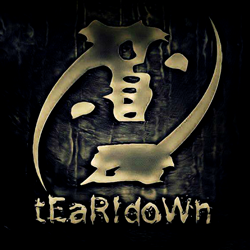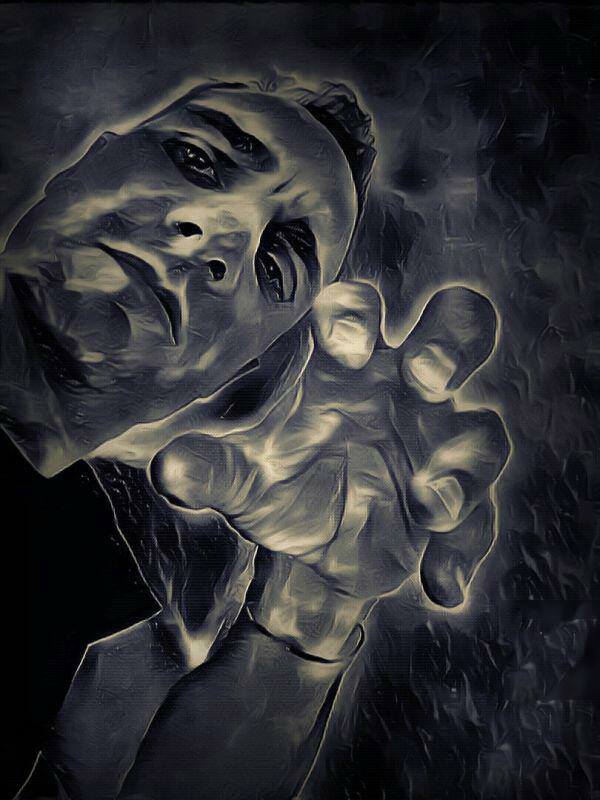Published by Alessandro Violante on March 24, 2018
 tEaR!dOwN could be put into the revival of electro-industrial and so called European ’90s dark electro especially operated by Nader Moumneh (Electro Aggression Records). Charly and Oliver Spring (already member of historical dark electro act Sleepwalk) have just released their new album entitled Shades of Apathy, and here we talk with them about it and about their music. This interview is another chance to discover something more about a cult genre.
tEaR!dOwN could be put into the revival of electro-industrial and so called European ’90s dark electro especially operated by Nader Moumneh (Electro Aggression Records). Charly and Oliver Spring (already member of historical dark electro act Sleepwalk) have just released their new album entitled Shades of Apathy, and here we talk with them about it and about their music. This interview is another chance to discover something more about a cult genre.
Hi guys! We follow your music since Clouds cover the sun was released, and finally we are able to talk with you!
Oli: Thank you for catching up with us and your ongoing interest in our releases.
Do you want to tell to the readers something about your project?
C: As some of you might know, we are active since mid of last decade, but compared to others we came up with only a few releases.
This is mainly driven by our busy lives outside music with jobs and families and our strict approach to release only songs that completely meet our own expectations.
Oli: And let me add, we will do our best to ensure the next one will not take that long.:)
Oliver, you were also part of Sleepwalk (and you’ve worked with one of their new songs).
O: Yes, that’s right. After all these years it was the right time to come together to do something together again. The guys asked me if I would like to do the vocals for one of their new tracks and I did so. At the time when I was part of Sleepwalk we did it the other way and Andy (new singer) did the vocals for “Shattered Soul”.
If you had to find similarities and differences between the two projects, what would they be?
O: The members of both bands come from Switzerland and Germany; therefore the most exchange is done by internet file transfer.
C: Due to the distances we are not able to come together on regular base to work on songs or just to hang around.
In your albums the melodic element is very important and a main characteristic of your music. Do you agree with it?
C: Yes, completely agreed. This is one result of the way we create most of our tracks.
In the very first phase there is usually only the idea of the songs harmonics. Based on these ideas we create kind of rough 4 track demos to judge, what idea we will follow or put aside. Especially for Shades of Apathy we had almost all tracks preselected this way. So very early we had the melodic fundaments to develop the vocals. Next phase and the very longest was to push the demos sequentially and trough several steps to the final – and as we think – consistent overall album sound.
According to me, you share, along with Tri-State, a theatrical approach to songwriting and to how the lyrics are sung, plus your cover artwork for your new albums seems a theater mask. What do you think about it?
C: This impression might come from the classic song structures and our perspective during the producing and arranging the new album.
It was mainly a kind of home listeners perspective with special intention to all the supporting sound layers and lots of bits and pieces hidden somewhere in the background to support the overall atmosphere and glue the album sound together. The natural style of Olis vocals is the major element to deliver this atmosphere.
Let’s talk about Shades of apathy. What the new albums is about?
O: Without explaining contents song by song, main topic of the album is peoples strive for interpersonal relationship in very different forms, there are obsessive ones, lost ones or missed ones.
What’s the desire machine?
C: Very simple, the idea came, when I saw a TV clip of an Asian company producing realistic sex dolls. And I was wondering who the hell the customers are and what made them ending up there.
I would define Mirror a sort of “philosophical” song. Can you talk more in-depth about it?
O: “All has ended – all things I loved” from the chorus is the core feeling. It is the portrait of a guy that has lost his relationship. I imagine him living withdrawn from the outside world in a sparsely furnished house.
C: This person seems to be completely isolated. He has no one to talk to, only himself in the mirror and by this to his lost love. There is no happy end in this track.
You use syncopated rhythms, samples and piano inserts. It’s not classic EBM but something different, a particular formula. How would you define your approach to music?
O: Our main influence is for sure EBM / Dark Electro, but we have always tried to combine these influences and elements we use in a special way to sound different and to get some recognition factor. We believe, we found a good formula for our new album. We belong to this genre and will go further in this direction.
C: For t!d I do not care much about genre typical must have standards. They come in if useful and do not if something different is more fitting. So heavy machine drums can meet a brittle piano instead of a typical synth lead sound. It is all about picking the right elements to underline the songs atmosphere. We had no intention to deliver 4/4 in-your-face stuff for the dark dancefloors. To be honest, I have lost my direct connection to nowadays club scene years ago and there are enough bands to serve this. But for sure, it would be a nice side effect if 1 or 2 tracks should find a way to the clubs in a DJ set wih some dark electro classics.
It’s curious how each part of Apathy starts in the same way. Is the album a sort of theater play divided in three acts? Do you like theater?
C: It is not really a theatrical approach. But an album should be a start to end journey, with anticipation for your favorites but without a need to skip, like in vinyl days. Apathy parts 1+2 were intended to introduce the listeners to this journey, releasing him at the end with the calmer part 3. And no, it is not a mask, it is a heavily processed face morph of us two.
O: I am a family man for several years now, my whole week is kind of theatre, varying between horror and comedy…:)
Listening to your songs I think about “dark electro” pioneers. You’re a more melodic and less gloomy reinterpretation of their formula. Do you think you’re linked to that music genre?
O: I am a big fan of dark electro, infected early in the 90s by Bands like Placebo Effect, Mortal Constraint, Mentallo & the Fixer and this has left his mark in the t!d sound.
C: The classic dark electro / industrial – mainly from North American bands – is for sure the major inspiration for t!d. My record collection ranges from pop to doom metal and important for me is the feeling transported and best case a hook line to draw my attention, not the elements used. That’s why I tried to inject melodic elements throughout the album.
Why some letters of your music project are written lowercase and some uppercase? Just a curiosity, if you want to explain it.
O: It has no deeper meaning, we like the typography, it looks cool and harmonizes with the font and our logo.
C: At the very beginning we started with the idea of the name “a tear falls down“ that eventually brought us to shorter name tEaR!doWn. No idea, why we mixed upper & lower cases, but it became our trademark.
Thanks for the time you’ve dedicated us. If you want, greet our readers!
C: Many thanks for your interest and the chance to connect to your readers. Our best wishes to your mag and your readers, hopefully the next opportunity to get in touch will not take another 5 years.
O: Many thanks to all the readers taking time to read this interview and their interest in our music. We are hungry for some gigs with our new record, hopefully someday near to you.



